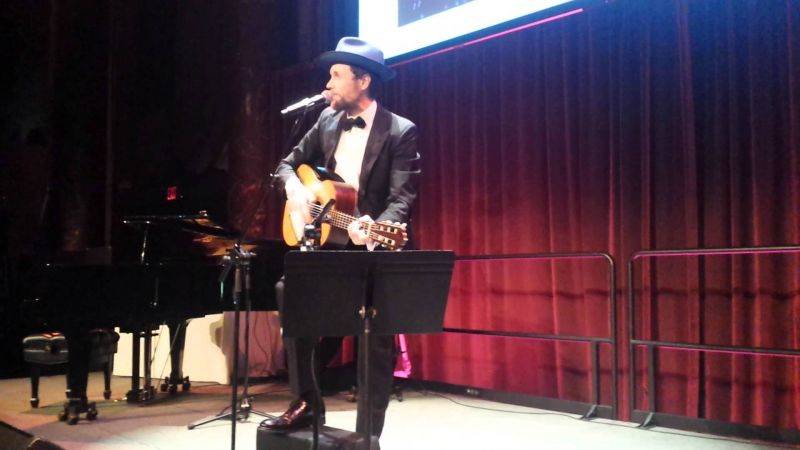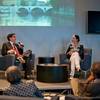Jovanotti: Two School Systems Working Together for Citizens of the Future
We met the artist, this time not as singer but as a parent of a student at the La Scuola d’Italia Guglielmo Marconi. We spoke with him about the differences of Italian and American school systems, and about the exceptional work carried out by the school that his daughter attends.
Lorenzo Cherubini, aka Jovanotti attended the Annual Gala of the La Scuola d’Italia Guglielmo Marconi held at Cipriani '42, as a father as well as a well-known Italian artist. To the joy of the students and their parents, the artist generously performed a short concert.
During the interview with Letizia Airos for-ItalyTV, he expressed the importance of this educational institution:
"I'm here at the Gala for the second year in a row as a parent. Even though I travel a lot, I assiduously track my daughter, and I think that this school is a great resource for our country. Since 1977, La Scuola d’Italia Guglielmo Marconi has played an important role in the teaching of the Italian language and culture in New York City, offering a complete curriculum, which emphasizes bilingualism and multiculturalism. It would be great if the relationship between the school in Italy and this school be more developed," said Jovanotti.
"In fact, I think of the many teens from Italy who would love to visit here and have the experience of living a couple of months in New York," he continued. "This is a city that changes your life, it opens up the horizons. My hope is therefore that La Suola d’Italia lets this relationship grow more and more."
Jovanotti went on: “The openness towards other cultures, and particularly the exchange between the Italian and the American, are the cornerstones of La Scuola d’Italia, and this is confirmed by the important agreement with the University for Foreigners of Perugia, which was just signed on March 20th.”
"What strikes me is the double identity of this school” – he continued - “the fact that an Italian school offers the benefits of the American educational system. This multiple identity offers opportunities, as well as certain pragmatism, an attention to the working world, therefore a certain outlook on the future.”
“To me it seems that schools in Italy are still too focused on strict, old-fashioned learning. Knowledge for the sake of knowledge, which is fine, but perhaps in the modern era, we need both things at once, the pleasure of knowledge for knowing but also the need for the application of that knowledge in the market of life. Market in a broad sense: the market of knowing, of technology and of innovation. In this sense I think that La Scuola d’Italia has these two identities and this balance is beautiful and should be strengthened," added Jovanotti.
When asked if he would recommend La Suola d’Italia to the Americans, Jovannotti answered: "Absolutely, because it seems that Americans have a sort of a deficiency in the schools below the university level. There's little attention given to the humanities, for example, which are considered to be almost of secondary importance. I graduated from high school. Italian, history, philosophy... I regret not having studied more when it was time. Now I find that I appreciate these subjects more than any others. This is particularly true in my case, many say that in the future the humanities will no longer exist. In school kids will study other things. I do not like this idea. It can’t be like that…. We will prevent it from happening."
“Italy has always been known for its "humanistic" education system, it is still struggling to provide students with the kind of education which is really enjoyable, a sort of preparation which would enable them to take on the working world without difficulty once they graduate. But of course even the American model, as functional as it may seem, compared to Italy, falls short in the area of humanities, considered almost a secondary knowledge. Consequently, a merger of the two systems certainly makes up for those deficiencies and it could fully prepare those who will be the citizens of tomorrow.”








































i-Italy
Facebook
Google+
This work may not be reproduced, in whole or in part, without prior written permission.
Questo lavoro non può essere riprodotto, in tutto o in parte, senza permesso scritto.